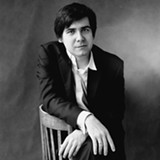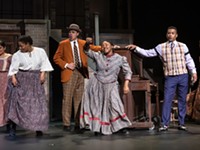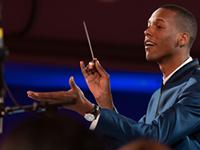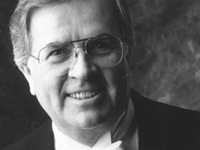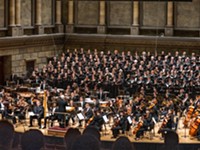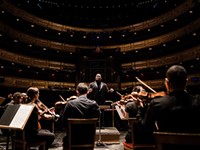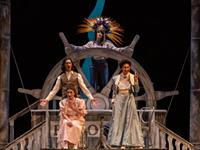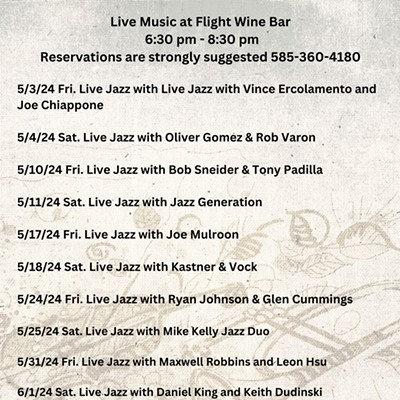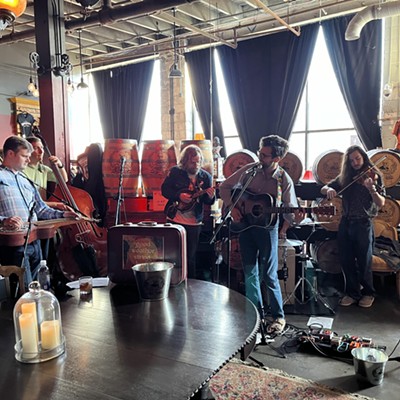[
{
"name": "500x250 Ad",
"insertPoint": "5",
"component": "15667920",
"parentWrapperClass": "",
"requiredCountToDisplay": "1"
}
]
During his first full season of programing Rochester Philharmonic Orchestra concerts, Ward Stare has included several examples of what used to be called "orchestral spectaculars," and he and the orchestra seem to relish the experience. Last night he chose one of the biggest, most vibrant orchestral spectaculars going: Richard Strauss's massive symphonic poem "Ein Heldenleben," or "A Hero's Life."
The life presented in 45 minutes or so of lavish musical detail is Richard Strauss's own, at least up into his mid-30's, when he wrote "Ein Heldenleben." It is part cartoon -- Strauss's life was not terribly heroic, at least not in the Napoleonic or Marvel Comics sense -- and part utterly serious. The then-controversial composer stands up for his artistry, celebrates the love and support of his wife, vanquishes his critics, and confidently (and as it happened, accurately) predicts his musical immortality.
Both over-the-top and highly engaging, this is not an easy work to hold together, and the audience's listening was handicapped by not having its different sections listed in the program — after all, this is program music. Audience members who'd never heard "Ein Heldenleben" might be forgiven for wondering why the woodwinds made so much dissonant noise in one section (they are Strauss's portrayal of music critics); why concertmaster Juliana Athayde played by herself so much (the long violin solos are a musical portrait of Strauss's formidable wife Pauline); or why Strauss quotes a number of his own works (they represent his "works of peace" and artistic legacy).
If you did know what was going on in "Ein Heldenleben," Ward Stare and the RPO were extremely effective guides. This was a much livelier affair than the orchestra's performance several years ago under Christopher Seaman, with Stare bringing a lot of energy and enthusiasm to music that can easily seem over-complicated and earthbound. The orchestra generally sounded splendid, with those embedded cellos imparting great warmth to the string sound, and some snazzy brass playing (with added players) in "The Hero's Battle." Athayde dispatched her solos with such panache as to make me think that she and Stare should consider reviving Strauss's rarely heard Violin Concerto.
For this week's concert, Stare mixed the RPO strings up a bit, with the cellos (usually on the conductor's right) switched with the second violins. The reason for this was immediately apparent, when the cellos launched the long, confident opening theme and it projected beautifully into Kodak Hall. The setup also helped bring several divided-string passages into relief. (By the way, splitting the violins with firsts on the conductor's left and seconds on his right was a practice Strauss would have recognized; it was common orchestral practice until the 20th century.)
Last year, Vadym Kholodenko made his RPO debut in Prokofiev's Second Piano Concerto; this week he returns with the Third. RPO audiences seem to love Kholodenko, and this Van Cliburn Competition winner definitely has the chops for the big Russian knuckle-busters. That Prokofiev Second was most impressive -- and so was his performance of this more familiar concerto. It was brilliant in the extreme, but to my mind the music, virtuosic as it is, often calls for a more relaxed approach. When Kholodenko lightened up, as he did in several of the variations that make up Prokofiev's second movement, he sounded more engaging and colorful. Much of the rest was exciting, but seemed dispatched a touch too quickly and efficiently.
Kholodenko's encore (I didn't recognize it, but it sounded like Rachmaninoff) was in a way even better than his concerto performance. The pianist packed a remarkable amount of dramatic intensity into a few minutes. I hope he returns to the RPO, but I would now be curious to hear his approach to the interpretive demands in say, Brahms, Beethoven, or Schumann; technical demands, he doesn't have to worry about.
Ward Stare chose a winner for the concert opener, a short piece by the young American composer Stephanie Berg called "Ravish and Mayhem." It is just the right length, infectiously rhythmic, and vividly orchestrated. Its six minutes or so do provide a bit of ravishing slow music and, near the end, some genuine orchestral mayhem, in which the RPO's horn section became an enthusiastic and very convincing herd of elephants.
